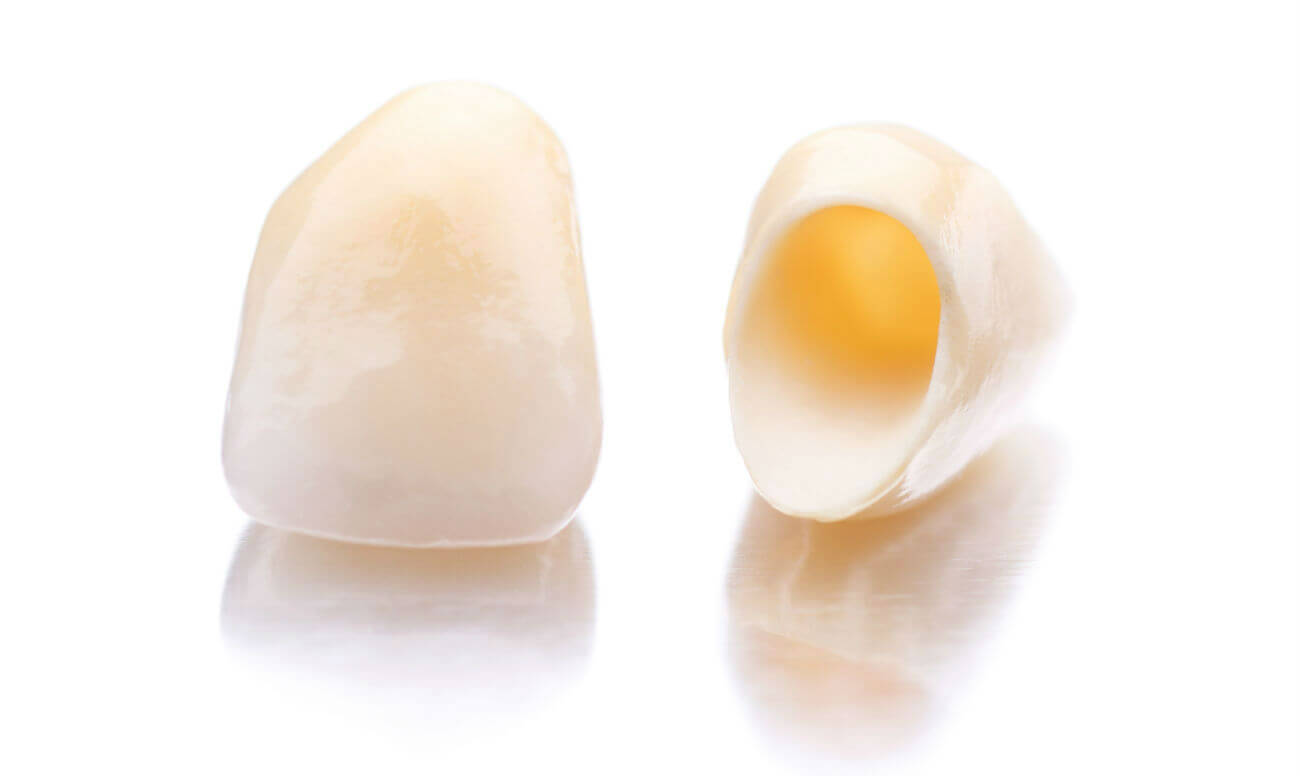Ceramic crowns are prosthetic restorations that are permanently fixed to the polished tooth or dental implant, aimed at the reconstruction of lost functions and aesthetics of the tooth.
+ 389 47 609 558 or +389 70 395 184
Ceramic Crowns
The crown is made in cases where the tooth is so damaged that sealants cannot be used, when the tooth is weakened due to caries, after endodontic treatment.
Teeth that have had lots of caries or teeth that have had endodontic treatment usually have severe damage, so it would be best to protecting them using a crown. For aesthetic reasons, the crowns can reshape teeth that are rotated or tilted.
Crowns can solve staining of the teeth, especially teeth that have gone through endodontic treatment, and a skilled technician can achieve the desired effect using proper selection of materials and colors.

Metal ceramic crowns are still the most common choice of our patients because of the very reasonable price, excellent performance and solid aesthetic components. They are made of a metal matrix which is upholstered in the finest ceramic. They lack the natural translucency, but a skilled technician can achieve satisfactory aesthetics and the tooth can hardly be distinguished from the natural. The greatest disadvantage is that in a case of gingival recession the black metal might become visible. Moreover, the metal from the crown could make gingival coloring and therefore it might appear gray. This type of coloring cannot be removed, not even by replacing them with fully ceramic crowns. This is why, for the frontal esthetic zone we strongly recommend for the crowns to be fully ceramic (lithium disilicate or zirconia) crowns.
Full ceramic crowns (lithium disilicate) are made from pure ceramic characterized by high aesthetics due to its translucency, and are thus able to fully mimic natural teeth. These are fully biocompatible and the options for achieving the desired color are infinite. Making such crowns demands complex laboratory work, and therefore the final price is slightly higher.
Zirconia ceramic crowns are made of high quality zircon base coated in ceramics, and represent the pinnacle of quality. They are characterized by high strength and biocompatibility, which allows them to set in almost all situations in your mouth. Because of its strength it is used both in the front and in the back of the mouth. These crowns do not contain metal therefore the bio-aesthetics is not disrupted not even in cases of gingival recession i.e. when the root of the tooth becomes visible.
Regardless of the characteristics of the material it is necessary to thoroughly consult with your dentist to find an optimal solution that is in accordance with the situation in your mouth!!!
Benefits of full ceramic crowns compared to metal ceramic crowns
Strength
E.max ceramics for strength 3 times higher than that of tooth enamel, making the fear of cracking crowns unfounded.
Aesthetics
Complete ceramic fully mimics the optical properties of natural teeth. Properties such as translucency, opalescence, fluorescence and transparency are fully transferred in the ceramic resulting in a crown that cannot be distinguished from natural teeth.
Biocompatibility
Ceramics, unlike metal, does not cause allergies and tissue tolerates it perfectly, there is no coloring of the gingiva and the aesthetics is preserved even if there is gingival recession.
Persistence
Metal exposed to moisture (saliva) in the mouth corrodes and releases metal particles that remain in the gums and can cause dark coloration. This coloration cannot be removed, not even if they are replaced with new ceramic ones.
Disadvantages of full ceramic crowns compared to metal ceramic crowns
Complicated production
Production of all-ceramic crowns is very complex, both for dentists and for technicians.
The price
Due to the complexity of making, all ceramic crowns are financially more demanding than metal-ceramic crowns.
Teeth grinding
Bad habits, such as grinding your teeth at night (bruxism) is bad for ceramics.
